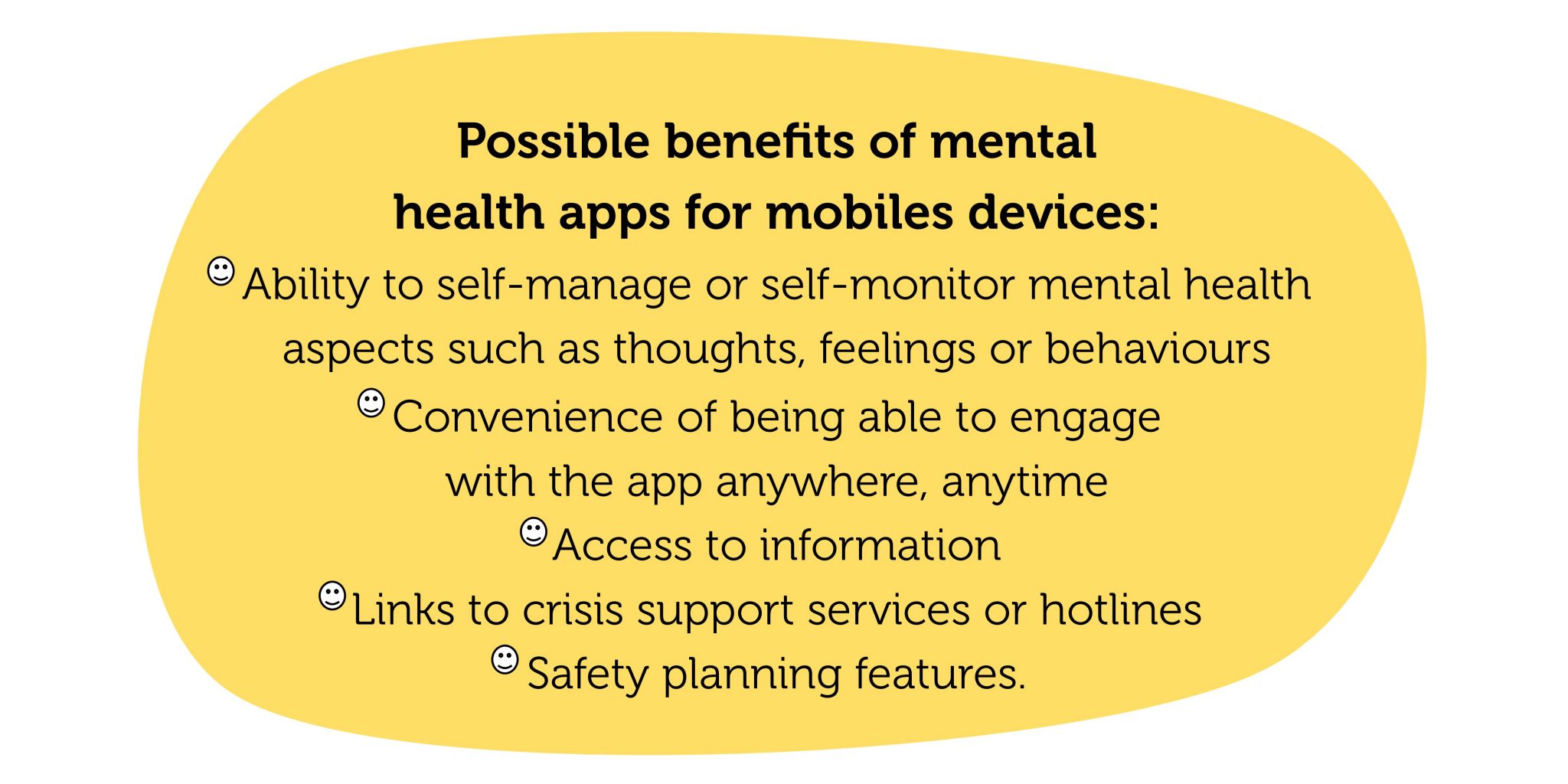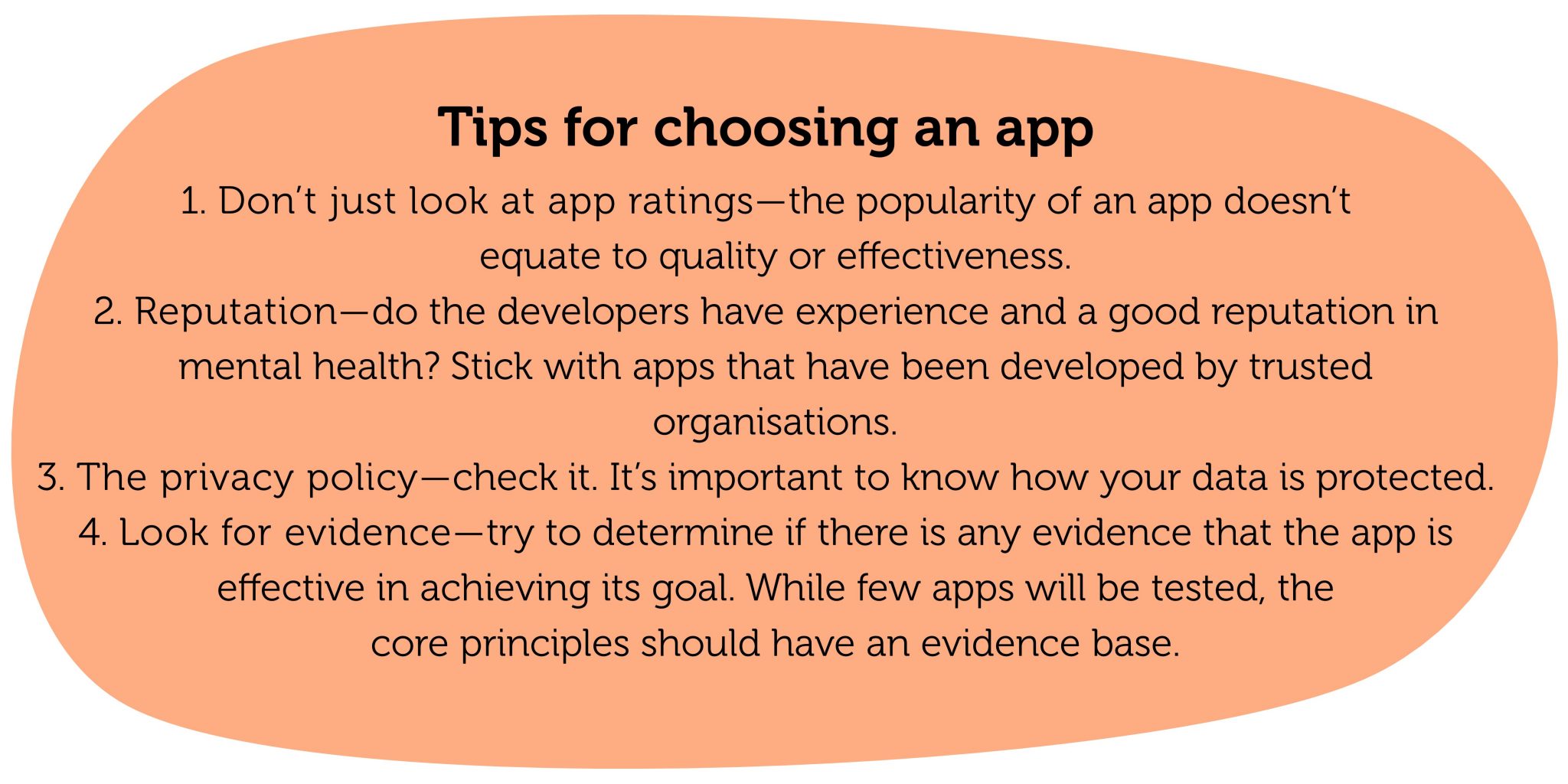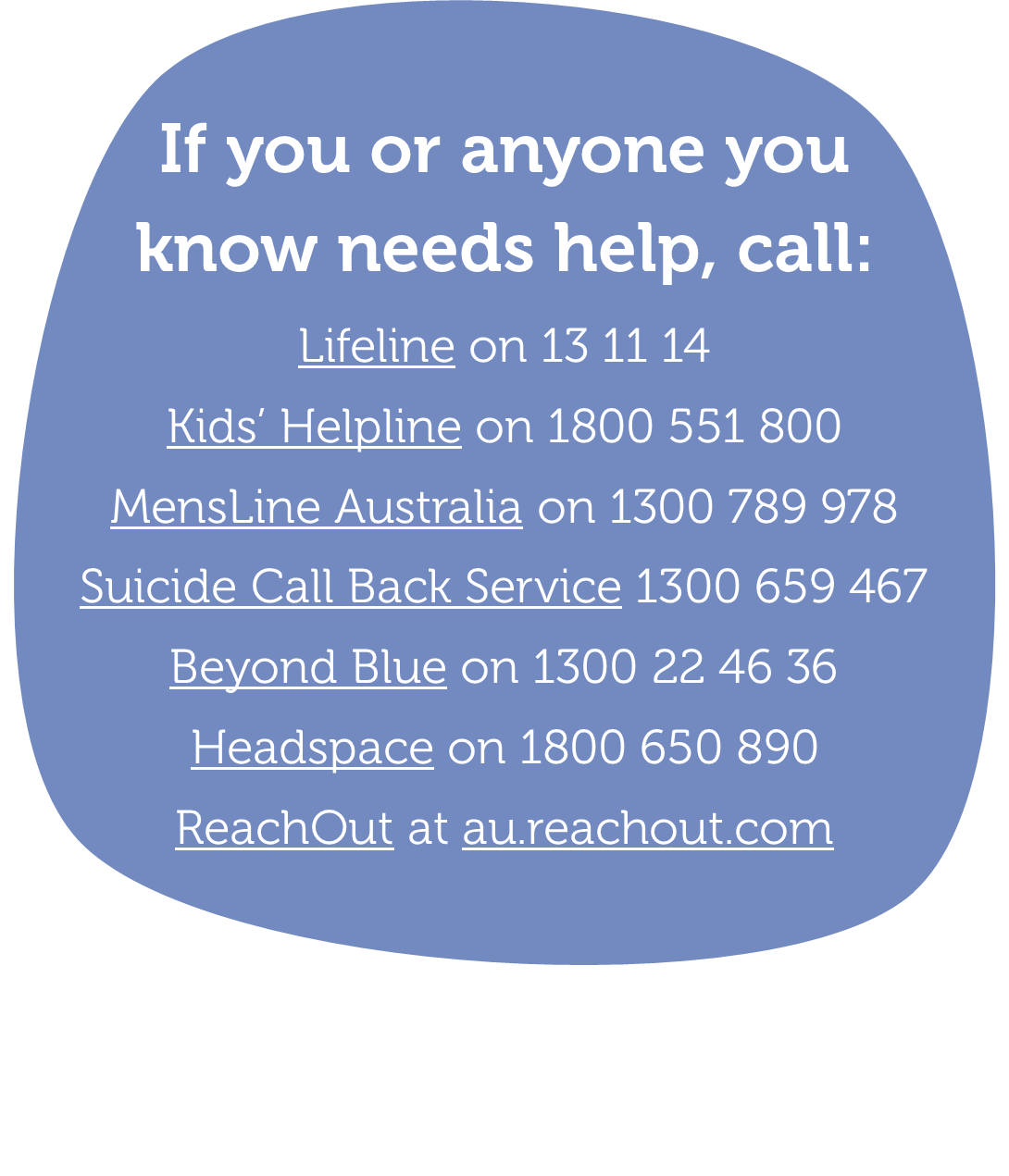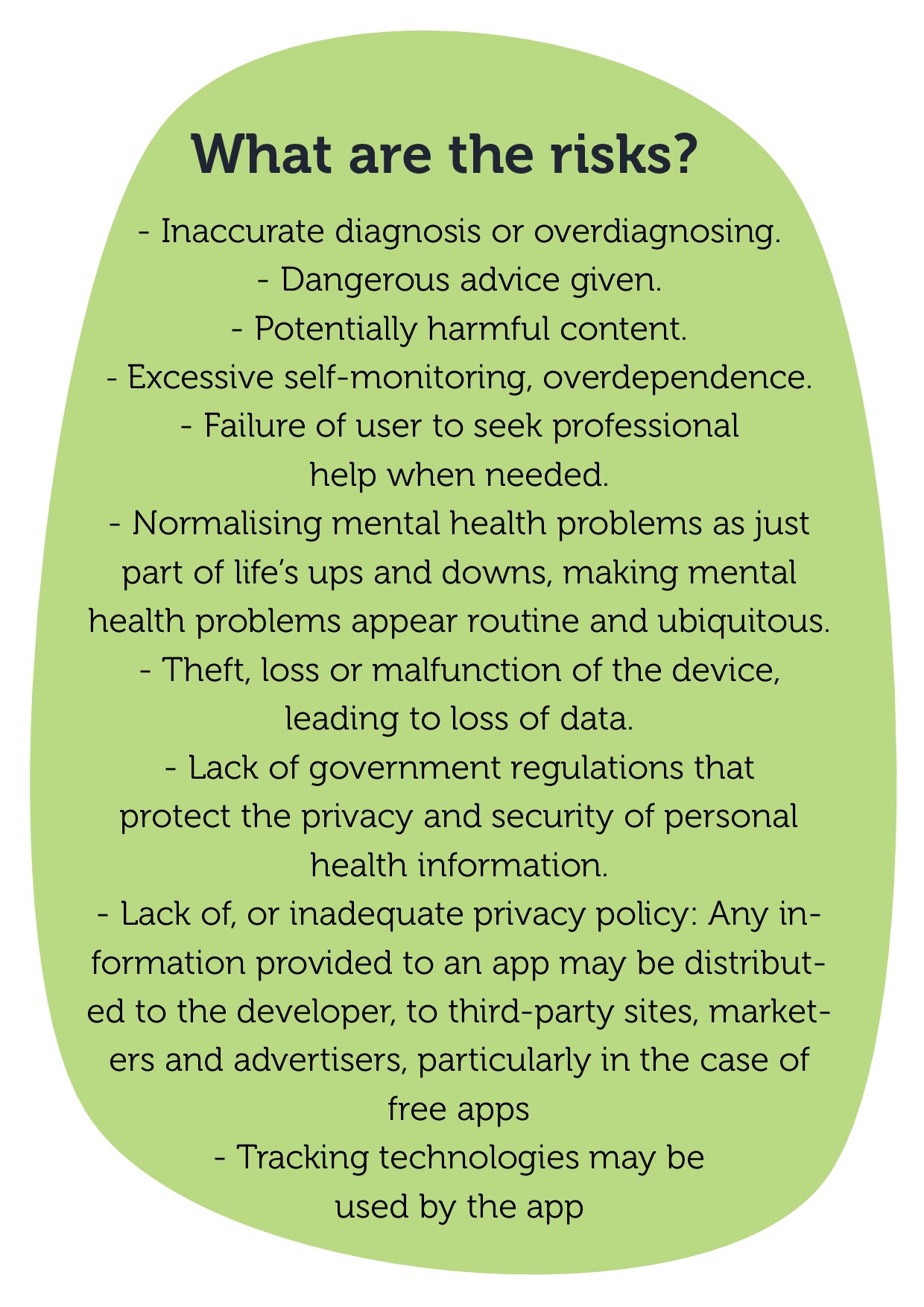Mental health apps for mobile devices: do they help and how do you choose the right one for you?
Lesley McKarney
With the explosion of digital mental health support in the form of mindfulness and brain-training apps for mobile devices, consumers have an affordable, personalised and convenient way to seek a little extra support for maintaining good mental health, or for coping with mental health issues such as depression, anxiety, isolation and addiction. Sounds ideal, right?
But what if such an app could potentially do psychological harm, or collect and share your personal information? These concerns have been expressed by a number of mental health experts in recent years.
In this article, we explore the pros and cons of the burgeoning field of mental health apps to help you, the consumer, make a better-informed choice.
Why use a mental health app?
In recent years, the emergence of mental health apps has been viewed positively by many as meeting an important need. Almost half of the Australian population will experience a mental illness at some time in their lives, and while one in five (20.0%) Australians aged 16-85 years will have experienced a mental illness in the past year, over half of them will not seek help. Mental health professionals are also in high demand but in short supply, particularly in regional and rural areas. The cost of therapy can also be a barrier to many people accessing support.
Digital mental health apps are being framed as a way of people getting access to treatment that’s flexible, affordable and fits in with their lifestyle and location. The apps promote anything from guided mental illness recovery to encouraging beneficial habits that improve mental health and wellbeing. Additionally, mobile mental health apps may remove some of the stigma or anxiety around accessing services, particularly for young people.

Are they effective?
There are thousands of mental health apps for both iOS (Apple) and Android platforms that are available through a variety of app stores, pitched at people experiencing anything from depression to eating disorder recovery, anxiety, post-traumatic stress disorder, obsessive-compulsive disorder, addiction and more. Many have free registration, others you have to pay for.
Evidence is emerging that mental health apps can be effective for conditions such as depression, anxiety and schizophrenia. However, despite the claims of many apps to effectively diagnose conditions, improve symptoms or mood, or foster self-management a person’s mental illness reduce symptoms, a study published earlier this year in Nature Digital Medicine argued that a vast majority of the mental health apps being developed globally are not based on credible scientific evidence, nor do they incorporate the end-users’ experience in their design. Moreover, mental health app developers rarely validate their app’s effectiveness after launch. To complicate matters further, app stores are constantly adding and removing apps, with the turnover of apps making it difficult to assess effectiveness over time.
In addition to rarely being backed by good evidence of efficacy, there are some questionable public health messages being delivered by their developers, by and large. In a 2018 study, Australian researchers looked at the way 61 mental health apps were marketed to consumers. They found that apps generally promoted the messages that poor or fragile mental health is commonplace, and was due to a person’s poor psychological habits rather than being a normal reaction to life stressors. There were also strong messages that individuals can easily manage their own mental health problems by using these apps alone, when in fact, numerous experts have expressed concerns over the years that people are often seeking these tools without the guidance of professionals. The study’s authors concluded that many apps ‘medicalise normal mental states and present normative messages about personal responsibility for well-being’.
It is suggested that apps cannot take the place of engaging with professional who can offer individualised interpretations and insights that an app cannot provide, as well as adding an element of accountability. In the ideal world, the best mental health app would have mental health practitioners onboard, ready to answer questions, plus a 24/7 support hotline for more severe cases. However, supported apps such as these would push the cost of them out of reach for some people, reducing accessibility. Ultimately, the consumer also needs to be confident that they are receiving a high standard of care and evidence-based practices when engaging with supported apps.
For now, a healthy dose of caution is warranted before investing too much confidence in any mental health app, and seeing a mental health professional in person is always advisable, at least initially.
How do I choose the right app for me?
Consumer ratings
A popular way for people to find an app is to search app stores (e.g. Apple iTunes or Google Play) and choose the most popular or highest-rated product. Consumer ratings do not bear any correlation to clinical effectiveness or useability, though, and can be biased as not everyone is willing to share a positive or negative experience. Consumer ratings aside, the consumer is left with marketing material provided by app developers as a principal source of information in their decision making.
App rating guidelines
App rating guidelines such as the Mobile App Rating Scale (MARS) outline which characteristics (e.g., engagement, functionality, aesthetics, information, subjective quality) to consider when assessing a mobile mental health app. The MARS guidelines weight all of these characteristics equally, which unfortunately means that the evidence base behind an app’s therapeutic claims is perhaps not given the appropriate attention it deserves. The Canadian Institutes of Health Research is in the process of developing a more robust framework for assessing mental health apps, which attaches greater weight to factors such as evidence base, gender responsiveness, and cultural appropriateness, that are important to a broad range of stakeholders. Watch this space.
The first step is to have an understanding of the symptoms you’d like help with managing, before you find an app to help with that.

Fundamentally, a big part of taking care of yourself is understanding how to maintain mental health wellbeing, how to recognise and get support for mental health problems (both for yourself and others) and how to facilitate your mind to thrive. There might just be a mental health app out there to help you do this.
If you’re looking for more information on mental healthcare, or think you need more support, check out the helplines and support organisations in the blue box below. Otherwise, you may find some of our mental health services useful. Our team of BCH counsellors and therapists are professional, kind and non-judgmental, and will help you to get to a more healthy mental space. You don’t have to do it alone!
- general counselling – a great place to start if you’re looking for general help with your mental health.
- headspace Ballarat – an awesome mental health organisation specifically for youth aged 12-25.
- Branching Out – a nine-week group program to assist you with self-confidence and anxiety.
- relaxation classes – mindful relaxation can assist with reducing anxiety, improving sleep and general wellbeing.
- alcohol & other drug counselling – specific support and therapy for individuals and their families who are affected by addiction.
- trauma & torture counselling – support for refugees and asylum seekers who have been affected by trauma or torture.

Sources: “Finding peace of mind: Navigating the marketplace of mental health apps.” University of Sydney, 2017; Larsen et al. 2016 A Systematic Assessment of Smartphone Tools for Suicide Prevention & the Black Dog Institute



